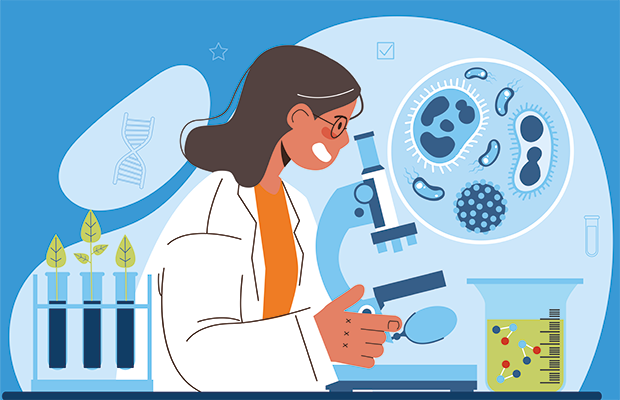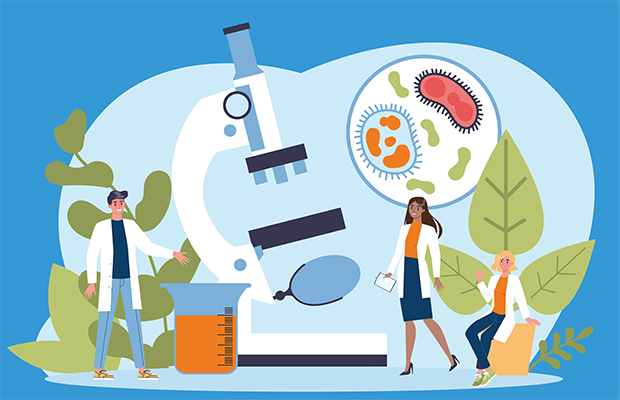This discussion is now closed.
- A-level Exam Discussions 2024
- GCSE Exam Discussions 2024
- OCR A Level Classical Civilisation Paper 3 (H408/31-34) - 3rd June 2024 [Exam Chat]
- GCSE Biology Study Group 2022-2023
- A-level Biology Study Group 2022-2023
- A Level Exam Discussions 2023
- GCSE Exam Discussions 2023
- School is killing me - Y11 "GYG" 2022
- OCR A-LEVEL PSYCHOLOGY PAPER 3 (H567/03) - 3rd June [Exam Chat]
- OCR A-Level Biology A Paper 2 (H420/02) - 14th June 2024 [Exam Chat]
- Over 500 questions on AQA Bio Unit 4 + Current Spec and old Spec papers + MS!
- OCR A-Level Biology A Paper 1 (H420/01) - 5th June 2024 [Exam Chat]
- AS and A level urgent help & advice
- A level mini tests
- Help! How can I improve ?
- Self-teaching Chemistry A-level (as a private candidate)?
- OCR A-Level Biology A Paper 3 (H420/03) - 19th June 2024 [Exam Chat]
- my a-level journey 🧸♡🍪
- GRG 0: Intro
- burnt out for paper 2s
OCR Biology F212 Revision [3rd June 2013] (Now Closed)
Scroll to see replies
Posted from TSR Mobile
There are 2 different types of subunit with 2 subunits each - 4 in total
T lymphocytes have receptors
B lymphocytes have receptors and antibodies.
Is this correct? Or is receptor = antibody?
Posted from TSR Mobile
T lymphocytes have receptors
B lymphocytes have receptors and antibodies.
Is this correct? Or is receptor = antibody?
Posted from TSR Mobile
they both have receptors, but with B cells, plasma divides (by mitosis?) into b memory and antibodies
i think
honestly don't know but this is what I think (and hope for mostly)
Water
inhibitors and enzymes
DNA replications and RNA transcription
links of smoking to one disease
immune system
Insitu/exsitu
sampling
MRSA might become untreatable because no anitbiotics can combat it. This could mean it could spread in pandemic proportions leading to many people dying. It takes a lot of time and a lot of money to develop new antibiotics.
Water
inhibitors and enzymes
DNA replications and RNA transcription
links of smoking to one disease
immune system
Insitu/exsitu
sampling
I agree with most of these. Water has only come up twice, smoking has not come up thatt much. Also long immune question has not come up- I will cry in the exam if it does
 oh and also ex situ and insitu, I totally agree. Perhaps the advantages and disadvantages?
oh and also ex situ and insitu, I totally agree. Perhaps the advantages and disadvantages?Posted from TSR Mobile
Yeah I'd say routine handwashing with antibacterial soap at frequent intervals, & quarenteening any infected individuals to minimalise contact and therefore transmission of mrsa to other individuals

Water
inhibitors and enzymes
DNA replications and RNA transcription
links of smoking to one disease
immune system
Insitu/exsitu
sampling
Sampling! :O That is my weakest point there.
To add to that list (And based on what came up on 2013)
* Benedict test.
* TB
*Domain and Kingdom
*Natural selection.
I am too tired to think of more.
Thanks!
 Makes sense now
Makes sense now oh and also ex situ and insitu, I totally agree. Perhaps the advantages and disadvantages?
oh and also ex situ and insitu, I totally agree. Perhaps the advantages and disadvantages?Posted from TSR Mobile
do you think Darwin's 4 theories might come up?
That would be great for me if it does. Have they ever asked that?
Two questions:
How does bacteria spoil food?
and
Outline selective breeding/progeny testing.

I am sure that the second textbook is a third function in a way!
I know it as it, anyway.

Posted from TSR Mobile
Two questions:
How does bacteria spoil food?
and
Outline selective breeding/progeny testing.
Bacteria reproduce and so there are many bacterai. They release enzymes which break down parts of the food such as proteins to amino acids, and they release toxins as well, making the food go mushy and change in smell and colour.
I don;t know about pyogeny testing never heard of it
But slective breeding involves choosing organisms with the best characteristics (such as good mothering skills in cattle and high meat content) and getting them to interbreed. From the offspring you can then choose the best offspring again and repeat this process over many generations so that the allelle frequency of the characteristic you want increases in the population.

Also, which one do you reckon is better to cover thoroughly right now, module 2 or module 3?

Related discussions
- A-level Exam Discussions 2024
- GCSE Exam Discussions 2024
- OCR A Level Classical Civilisation Paper 3 (H408/31-34) - 3rd June 2024 [Exam Chat]
- GCSE Biology Study Group 2022-2023
- A-level Biology Study Group 2022-2023
- A Level Exam Discussions 2023
- GCSE Exam Discussions 2023
- School is killing me - Y11 "GYG" 2022
- OCR A-LEVEL PSYCHOLOGY PAPER 3 (H567/03) - 3rd June [Exam Chat]
- OCR A-Level Biology A Paper 2 (H420/02) - 14th June 2024 [Exam Chat]
- Over 500 questions on AQA Bio Unit 4 + Current Spec and old Spec papers + MS!
- OCR A-Level Biology A Paper 1 (H420/01) - 5th June 2024 [Exam Chat]
- AS and A level urgent help & advice
- A level mini tests
- Help! How can I improve ?
- Self-teaching Chemistry A-level (as a private candidate)?
- OCR A-Level Biology A Paper 3 (H420/03) - 19th June 2024 [Exam Chat]
- my a-level journey 🧸♡🍪
- GRG 0: Intro
- burnt out for paper 2s
Latest
Last reply 1 minute ago
Official London School of Economics and Political Science 2024 Applicant ThreadLast reply 1 minute ago
Official UCL Offer Holders Thread for 2024 entryLast reply 3 minutes ago
2024 entry A100 / A101 Medicine fastest and slowest offer senders858
Last reply 4 minutes ago
British Airways Graduate Programme 2024Last reply 4 minutes ago
Official: University of Manchester A106 2024 Entry Applicants1278
Last reply 5 minutes ago
Haven't heard back from LSELast reply 7 minutes ago
Official Bishop Grosseteste University Applicant Thread for 2024Last reply 10 minutes ago
Imperial offer but reject by st andrews ???Last reply 16 minutes ago
Official: Queen's University Belfast A100 2024 Entry ApplicantsLast reply 19 minutes ago
If I drop a subject, do I have to submit the grade to UCAS still?Last reply 19 minutes ago
What is better LLM SQE or SQE Preparation Courses - or Training contract?Posted 21 minutes ago
is anyone else going to the bath offer holders day april 20th?Posted 22 minutes ago
Is City university of London better or University of YorkLast reply 23 minutes ago
Inlaks, Commonwealth, and Other Scholarships for Indian Students 2024: ThreadLast reply 23 minutes ago
Can I do medicine with these gcse grades and what unis would be most likely to acceptTrending
Last reply 9 hours ago
OCR A-Level Biology A Paper 1 (H420/01) - 5th June 2024 [Exam Chat]Last reply 12 hours ago
AQA GCSE Biology Paper 1 (Higher Combined) 8464/1H - 10th May 2024 [Exam Chat]Last reply 2 days ago
AQA GCSE Biology Paper 1 Triple Higher Tier 10th May 2024 [Exam Chat]Last reply 2 days ago
Edexcel A-level Salter's-Nuffield Advanced Biology Papers 1, 2, 3 (9BN0 01-03)Last reply 1 week ago
Unofficial Mark scheme: AQA GCSE Biology Paper 1 Triple Higher Tier 16th May 2023Last reply 2 weeks ago
Edexcel A-level Biology A (Salters-Nuffield) Paper 3 - 19th June 2024 [Exam Chat]Posted 2 weeks ago
Edexcel GCSE Combined Science Paper 1 Biology 1 Higher - 10th May 2024 [Exam Chat]Last reply 3 weeks ago
OCR A-Level Biology A Paper 2 (H420/02) - 14th June 2024 [Exam Chat]Last reply 3 weeks ago
OCR A-Level Biology A Paper 3 (H420/03) - 19th June 2024 [Exam Chat]Last reply 2 months ago
AQA GCSE Biology Paper 2 (Higher Tier Combined) 8464/2H - 9th June 2023 [Exam Chat]Last reply 3 months ago
Unofficial Mark scheme: AQA GCSE Biology Higher Combined 8464/1H 16th May 2023Last reply 5 months ago
AQA GCSE Biology Paper 1 (Higher Combined) 8464/1H - 16th May 2023 [Exam Chat]Last reply 5 months ago
Edexcel GCSE Biology Paper 1 Higher Combined 1SC0 1BH - 16th May 2023 [Exam Chat]Last reply 9 months ago
Edexcel GCSE Biology Paper 2 Higher Combined 1SC0 2BH - 9th Jun 2023 [Exam Chat]Last reply 10 months ago
Edexcel A-level Biology B Paper 3 (9BI0 03) - 21st June 2023 [Exam Chat]Trending
Last reply 9 hours ago
OCR A-Level Biology A Paper 1 (H420/01) - 5th June 2024 [Exam Chat]Last reply 12 hours ago
AQA GCSE Biology Paper 1 (Higher Combined) 8464/1H - 10th May 2024 [Exam Chat]Last reply 2 days ago
AQA GCSE Biology Paper 1 Triple Higher Tier 10th May 2024 [Exam Chat]Last reply 2 days ago
Edexcel A-level Salter's-Nuffield Advanced Biology Papers 1, 2, 3 (9BN0 01-03)Last reply 1 week ago
Unofficial Mark scheme: AQA GCSE Biology Paper 1 Triple Higher Tier 16th May 2023Last reply 2 weeks ago
Edexcel A-level Biology A (Salters-Nuffield) Paper 3 - 19th June 2024 [Exam Chat]Posted 2 weeks ago
Edexcel GCSE Combined Science Paper 1 Biology 1 Higher - 10th May 2024 [Exam Chat]Last reply 3 weeks ago
OCR A-Level Biology A Paper 2 (H420/02) - 14th June 2024 [Exam Chat]Last reply 3 weeks ago
OCR A-Level Biology A Paper 3 (H420/03) - 19th June 2024 [Exam Chat]Last reply 2 months ago
AQA GCSE Biology Paper 2 (Higher Tier Combined) 8464/2H - 9th June 2023 [Exam Chat]Last reply 3 months ago
Unofficial Mark scheme: AQA GCSE Biology Higher Combined 8464/1H 16th May 2023Last reply 5 months ago
AQA GCSE Biology Paper 1 (Higher Combined) 8464/1H - 16th May 2023 [Exam Chat]Last reply 5 months ago
Edexcel GCSE Biology Paper 1 Higher Combined 1SC0 1BH - 16th May 2023 [Exam Chat]Last reply 9 months ago
Edexcel GCSE Biology Paper 2 Higher Combined 1SC0 2BH - 9th Jun 2023 [Exam Chat]Last reply 10 months ago
Edexcel A-level Biology B Paper 3 (9BI0 03) - 21st June 2023 [Exam Chat]



